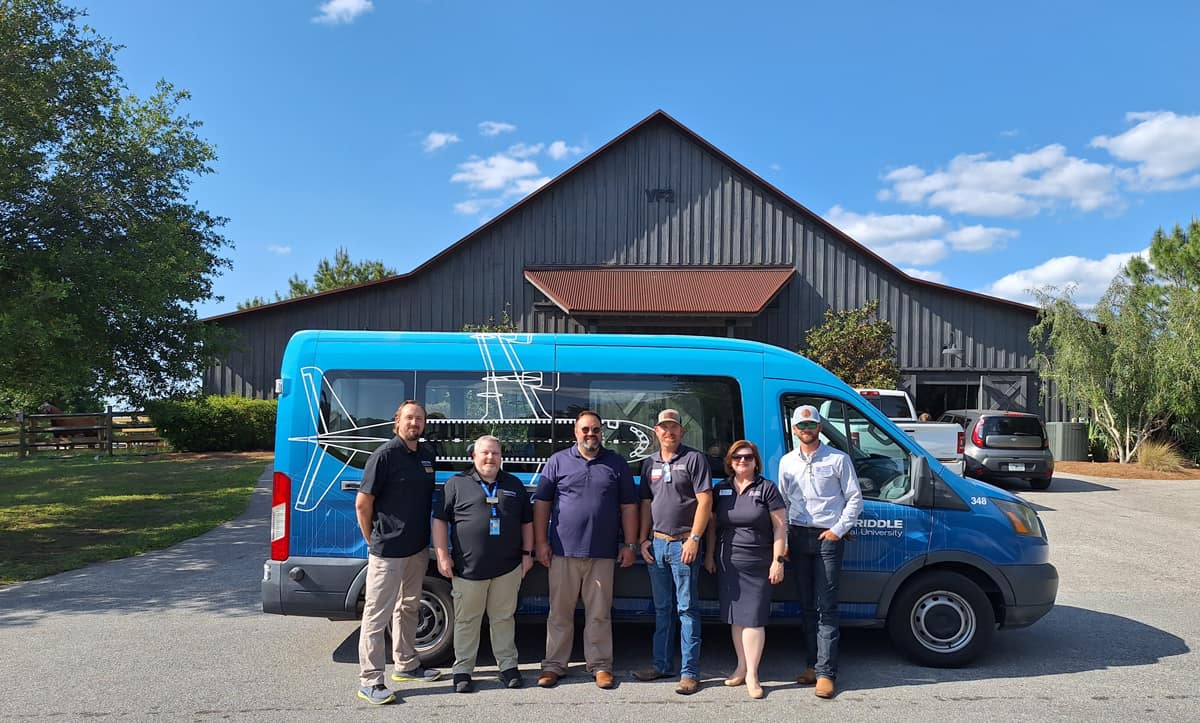Embry-Riddle and College of Central Florida Partner to Advance Agricultural Aviation Technology

Embry-Riddle Aeronautical University and the College of Central Florida (CF) have formalized a new partnership to enhance student education and advance the use of uncrewed aircraft systems (UAS) in agriculture.
A Memorandum of Understanding (MOU) signed by both institutions sets the stage for a collaborative effort to provide students with access to innovative technologies and hands-on experiences that align with emerging industry needs.
The agreement allows both institutions to share resources and expertise supporting career-connected education focused on high-skill, high-wage fields. As part of the collaboration, Embry-Riddle will bring autonomous aircraft demonstrations and guest lectures to College of Central Florida students, with a particular focus on agricultural applications of UAS technology.
“This partnership represents an exciting opportunity for students to explore the intersection of aviation and agriculture in a real-world setting,” said Dr. Alan Stolzer, dean of the College of Aviation. “We look forward to engaging with the College of Central Florida community and providing meaningful experiences that inspire the next generation of UAS leaders.”
Located in Ocala, Florida, the College of Central Florida’s 103-acre Vintage Farm campus offers academic programs in equine studies, agribusiness and agricultural technology. Through the partnership, Embry-Riddle faculty and students will conduct on-site demonstrations at the farm, showcasing how uncrewed systems can support agricultural operations such as crop monitoring, livestock management and precision farming.
“Expanding the college’s agribusiness training opportunities is responsive to the needs of employers,” said Dr. Jim Henningsen, president of the College of Central Florida. “With our area producing nearly $400 million in agriculture exports each year and generating an economic impact of more than $4 billion through our equine industry, CF is positioned to be Florida’s top educational provider for agribusiness career training, talent development and applied research.”
Both institutions have agreed to evaluate future opportunities on a case-by-case basis and establish specific agreements for program execution and intellectual property management. The agreement reaffirms both institutions’ commitment to providing students with transformative educational experiences aligned with workforce demands.
